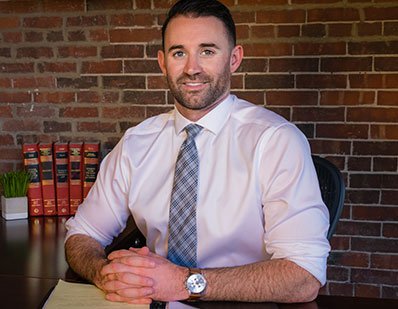People say that death is a natural part of life, and there is nothing we can do to avoid it. Every day, people die because of accidents, illnesses, and calamities, but this doesn’t lessen the pain felt by the people they leave behind. A loved one’s death will always be painful, but even more so if the death was caused by someone else.
Wrongful death claims exist as a way for the law to protect the people left behind, especially if they depended on the victim for support. It also gives the surviving family members peace of mind, knowing that the person responsible for their loved one’s death will pay for their negligence.
However, filing a wrongful death claim is not easy. A lot of lawsuits get thrown out or devalued because the family did not seek a legal representative on the matter. If you are thinking about filing legal action, you may be worried if your claim is valid, or if you have sufficient evidence to get the best outcome on your settlement. Seeking the help of wrongful death attorneys with experience in filing such claims is your best option if you want to make sure that your lawsuit is successful.
What is Considered Wrongful Death?

The first step to ensuring that your wrongful death claim is valid is to check if wrongful death actions apply to your situation. Not all unnatural deaths are wrongful deaths and the Massachusetts Wrongful Death Statute states that your claim must have the following elements:
Negligence
This means that the death of the victim was due to the negligence of others. One common scenario of negligence can be seen in a typical Boston car accident. The negligent driver hits the victim’s car because they were too distracted, chatting away on their mobile phones to see the victim’s car. As with most accidental deaths, this is unintentional and is often the result of failure to abide by proper protocols.
Malicious Intent
If negligence refers to unintentional harm, malicious intent is the complete opposite. In scenarios like this, the guilty party wanted harm to come to the victim. Although this doesn’t necessarily mean that the guilty party wanted them to die, but they willingly put the victim in dangerous situations. An example of this is when two motorists get into a heated argument, most commonly known as road rage. One party then rams into the other vehicle repeatedly, intending to cause harm, often resulting in fatal accidents.
Breach of Warranty
This refers to wrongful deaths caused by companies who don’t deliver following their warranty. For example, if your oven has a warranty of 2 years, and it explodes after 6 months of use, resulting in the death of another, you can sue the company for breach of warranty. Warranties are guarantees made by the company regarding the quality of their products. If a product has a warranty of 2 years, it means that the product should be free from major defects within those 2 years.
If your case has any of the wrongful death actions mentioned above, you may have a valid wrongful death claim on your hands. However, this doesn’t mean that the process will go smoothly. Aside from proving that your case has one of these elements, you have to prove that it was the direct cause of their death. Even if you have a valid cause for filing a wrongful death lawsuit, the other party will surely contest it to the best of their abilities.
How to Get Started on a Wrongful Death Claim
Now that you know wrongful death actions were made, where do you begin? For your claim to be declared valid, it must be filed the proper way. According to the Massachusetts wrongful death statute, the administrator or executor of the decedent’s estate should file the lawsuit. However, a person will only have a personal representative or executor assigned if they have an estate plan, and many citizens in the state don’t have one.
In situations like these, the surviving family members can request the court to assign a personal representative for the estate. Usually, the court appoints the spouse as the personal representative if the decedent is married, and the parents if the decedent is unmarried. If the decedent doesn’t have a spouse and their parents are also deceased, the court can appoint the closest relative, such as siblings, aunts, or uncles.
Wrongful Death Statute of Limitations
If you want your claim to be considered valid, you must file it within the state’s wrongful death statute of limitations, which is 3 years from the date of death. While 3 years may feel like a long time for people, keep in mind that the surviving family members may not want to go through legal proceedings while they are in mourning after a loved one’s death. Also, the time it takes to gather evidence and proof to solidify their claims take a lot of time, and in a lot of cases, 3 years go by pretty quickly.
Gathering Proof of Wrongful Death
Just because you have a valid cause for filing a wrongful death lawsuit doesn’t mean you will get the optimal results. The burden of proof is with the plaintiff, meaning you should present enough evidence to prove that there is wrongful death in this situation.
In essence, the process of gathering proof is the same as if you were preparing for a Boston personal injury claims process. This is because both civil lawsuits have a lot of similarities. In fact, if you are considering filing a wrongful death claim, the best way to determine if you have a valid case is by asking the question, “if the victim was alive and not dead, would they be eligible for financial compensation?”. If the answer is yes, then you have a strong case.
Compiling Medical Records
In most cases, the victim will spend some time in the hospital before their death. After the victim’s death, make sure to compile all their medical records, which include their medical bills, treatment expenses, therapy, lab work, prescriptions, and others. This will show the extent of their injuries, which lead to their untimely demise. The description of their injuries may also provide solid proof that the other party’s negligence or reckless action is the direct cause of the victim’s death.
Gathering Law Enforcement Documents
When an accident happens, paramedics and police officers are usually dispatched to the accident scene. Once an accident is reported, there is documentation of it, usually written by the police officer who was dispatched at the scene. Obtaining this police report will give you an accurate and unbiased account of what happened.
Witness Accounts
Although it is difficult to find witnesses after the accident occurred, remember that witnesses are usually interviewed immediately after the incident. If the victim was thinking of filing for damages when they were still alive, chances are their insurance adjuster already has documented the testimonies of the witnesses. Furthermore, police officers usually interrogate people who were present at the scene and their testimonies are usually included in the report.
If the death is workplace-related, you can still interview the victim’s co-workers even months after the incident. Keep in mind though, that some employees will side with their employer and may give you biased accounts.
Camera Footage
Nowadays, cameras are everywhere. There are CCTV cameras in establishments, traffic cam footage on the streets, and even dashcams in vehicles. Securing footage of the actual incident is not impossible anymore. Furthermore, if the at fault party is also being investigated by police for criminal charges, you can ask for the police’s cooperation in securing footage of the incident.
What Damages Can Be Awarded in Wrongful Death Lawsuits?
What can the surviving family sue for when it comes to wrongful death claims? Damages awarded in wrongful death lawsuits are vast – in fact, there are several categories of beneficiaries, depending on what relationship the plaintiff has with the decedent. There are damages awarded to spouses, minor children, adult children, parents, and other dependents. Some of the most common are:

- Medical Expenses – this can be filed by the surviving family or the estate, depending on which party originally paid for the deceased person’s medical bill. This includes all medical costs incurred from the time the victim was injured to the time of death.
- Funeral Expenses – this includes funeral costs paid out to the surviving family members or the estate, depending on who shouldered the costs.
- Loss of Future Income – this refers to all present and future perceived income that the decedent has lost the capacity to earn because of their hospitalization and subsequent death. This is usually paid out to the decedent’s spouse and children if they are married. For unmarried victims, this is usually compensation to dependents who needed the victim for financial support.
- Loss of Consortium – this refers to the emotional trauma suffered by the surviving family members due to the loss of a loved one. It can be filed by a spouse who has lost their partner, or on behalf of minor children because they lost a parent.
- Punitive Damages – this is paid out in situations wherein intention to cause harm is proven.
- Pain and Suffering – this refers to the victim’s own mental anguish and emotional trauma, which they experienced from the time of the incident up until their death.
Should You Hire a Personal Injury Attorney for Your Wrongful Death Claims?
One of the biggest reasons why a lot of wrongful death lawsuits are thrown out is because the surviving family did not have a legal representative to help them prepare for it. This is especially true if the legal claim is handled by the estate’s executor, which in most cases is a lawyer hired by the decedent. However, not all lawyers hired as executors are well-versed in wrongful death law, and in a lot of situations, it’s still better to hire a lawyer with experience in such claims.
The same is true for cases wherein there is no executor and the court instead appoints one of the surviving family members as the representative. If you are a court-appointed estate representative, it’s better to seek the help of wrongful death attorneys to gather proof and facilitate the process for you. As an added bonus, if your personal injury lawyer is a great negotiator, they may convince the other party to simply give you the compensation you deserve without having to go through a long and lengthy court process.. Faced with overwhelming evidence, the other party’s insurance company may decide to pay out, as they may not want things to be escalated to the Supreme Court.
At Michael Kelly, the well-being of our clients is our main priority. As a person who has just lost their loved one because of someone else’s negligence or recklessness, you need a wrongful death lawyer who will use all legal means possible to ensure that you are protected financially and that you are awarded the financial compensation you deserve.

